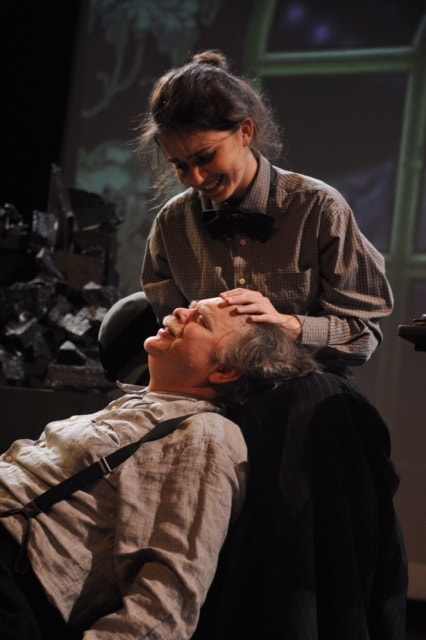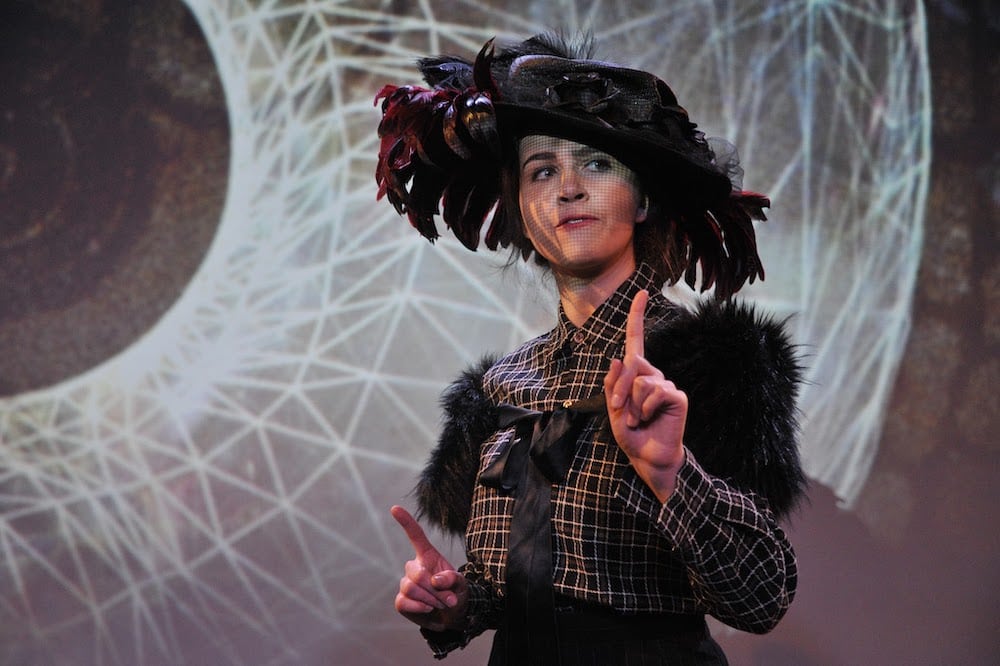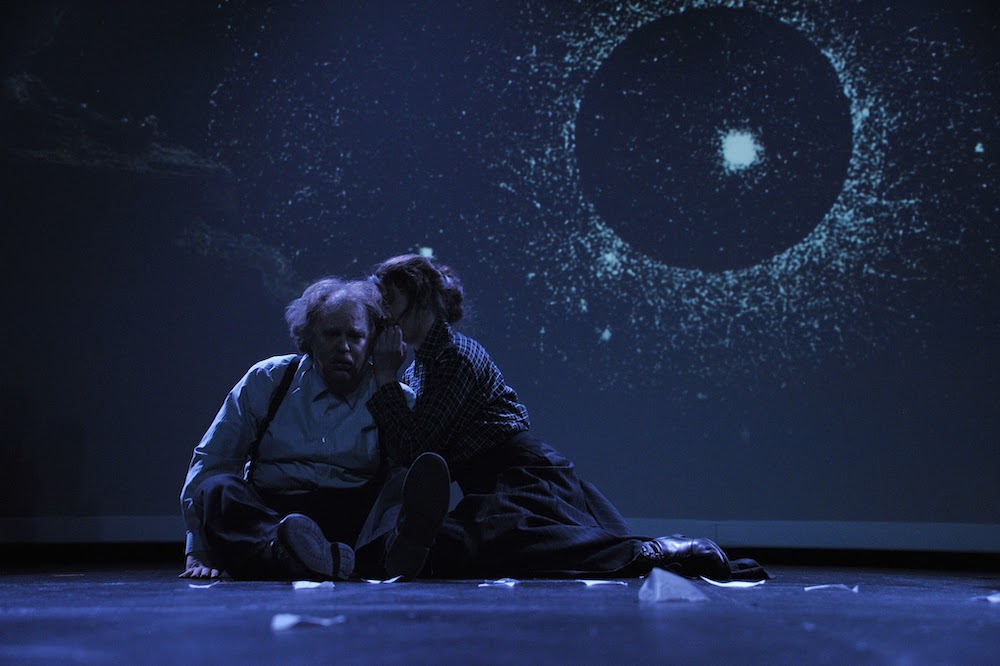The history of science is studded with female geniuses snubbed by sexism. There’s biophysicist Rosalind Franklin, geneticist Nettie Stevens, chemist Alice Ball— And several such brilliant women’s brains have appeared on stage, notably in Playwright Lauren Gunderson’s Silent Sky (about astronomer Henrietta Swan Leavitt), Emilie (about mathematician-philosopher Emilie Du Châtelet), and Ada and the Machine (about computer visionary Ada Lovelace).
Now comes Einstein’s Wife by Serbian playwright Snezana Gnjidic, which is cause for an International Women’s Day commemoration, because the universe of overlooked female scientists rediscovered through theater just expanded glowingly.

The title character is Mileva Marić, who was Albert Einstein’s first wife and a brilliant physicist in her own right. During their courtship and marriage, she made significant and uncredited contributions to the theories that were to bring him renown. ExPats Theatre has produced a fascinating and moving play about their relationship based on an idea by, and translated by, Milena Trobozic Garfield.
The play is not a docudrama; it’s “an imagined encounter” that takes place where Mileva and Albert are stuck together in a private hell for eternity. Based on newly available personal correspondence between Mileva and Albert and to their friends, the script is perfectly pitched in voices that sound like real people and brought vividly to life by Cecelia Auerswald as Mileva and Sasha Olinick as Albert.
In some of their most entertaining moments, Mileva can be deliciously sardonic, for instance
ALBERT: You were a genius.
MILEVA: Yes, I was a genius. I was the one who showed you that time and space are not absolute and you went around bragging about it.
They play-act scenes from their relationship, including when they met at Zurich Polytechnic, where she was a diligent student and he, lazy and mediocre. Here we first see Mileva’s having to cope with Albert’s presumptuous passion, as when he barges into her room and makes an unwanted sexual advance and she does not resist or object “Because I am polite.”
They also pass the time by playing games—Mileva sarcastically proposes one about his ego she calls “How famous is Albert?”
After Mileva bore Albert three children and subsumed her intelligence in mothering and homemaking, he moved on to Elsa, who became his second wife. These fraught circumstances get aired in poignant and prickly scenes that are among the most pointed in the play.

The first inspiration for Einstein’s famous theory of relativity (summed up in the formula E = mc2) gets attributed to Mileva in a bedroom scene:
MILEVA: Albert, listen, I am convinced that motion stops time…
Which he ignores with lamely amorous condescension:
ALBERT: You are my stopped time…
Despite several romantic scenes that make clear they once did love each other, the play ultimately gives Mileva ample dignity in recrimination, as when she says:
MILEVA: Your hell is my liberation.
Karin Rosnizeck directs with precision; each emotional shift and volley of wit gets the kind of compelling attention that consistently pulls in ours. The byplay between Auerswald and Olinick is a constant pleasure. But what stands out most about the play is the script’s unsentimental, un-sugar-coated look at how a woman’s brilliance got eclipsed in love with a man who…lost interest.
There’s a cringeworthy scene near the end, for instance, when Mileva reads aloud the text of a letter based on one that Albert actually wrote to her:
MILEVA: A list of Albert’s divine needs and holy commandments:
“You” meaning me, “will take care of the following things:
That my clothes are always in order
That I am served three meals every day at regular times…in my room
That nobody, under any circumstances, touches anything in my room or at my desk”ALBERT: What’s wrong with that?
MILEVA: I’m not finished. Now let’s hear your emotional requests:
“You” meaning me “have to promise that in all your future contacts with me you will:
One: never badmouth me, especially in front of the children,
Two: leave my room immediately and without questions the moment I say so,
Three: You will not expect any love or sympathy from me,
Four—
At which point Albert grabs the letter and tears it to pieces.

For all the playful humor and lighthearted warmth in the way Einstein’s Wife liberates Mileva Marić Einstein from sexism in science history, the play pulls no punches about the sexism she got stuck with at home with Albert.
One well may deduce that Einstein = male chauvinism2.
Credits
Einstein’s Wife by Snezana Gnjidic. Idea and translation by Milena Trobozic Garfield; Director: Karin Rosnizeck; Assistant Director: Mary May; Cast: Sasha Olinick as Albert Einstein and Cecelia Auerswald as Mileva Marić; Set Design: Alexa Ross; Costume Design: Alisa Mandel; Lights/Projection Design: Dylan Uremovich; Sound Design: Karin Rosnizeck and Laura Schlachtmeyer; Stage Manager: Laura Schlachtmeyer; Fight Choreographer: Ian Claar
Running Time: 85 minutes, with no intermission.
Einstein’s Wife plays through March 22, 2020, presented by ExPats Theatre performing at Atlas Performing Arts Center, Lab Theatre II, 1333 H Street, NE, Washington, DC. Tickets are available online.
READ David Siegel’s review, “Plenty to chew on in ExPats’ thoughtful production of ‘Einstein’s Wife’”




